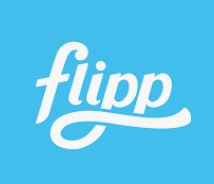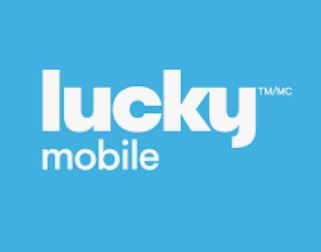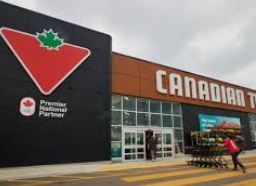
Facebook.com is one of the largest and most well-known social media platforms in the world, founded in 2004 by Mark Zuckerberg and his college roommates, Eduardo Saverin, Andrew McCollum, Dustin Moskovitz, and Chris Hughes, at Harvard University. Originally designed as a college networking website, Facebook rapidly expanded to a global platform, allowing people to connect, share, and interact with others online.
Here’s an overview of what Facebook.com offers and how it works:
1. User Profiles and Friendships
- Personal Profiles: Users create a personal profile, which includes basic information such as name, age, profile picture, bio, location, and work or educational history.
- Friend Requests: Users can send friend requests to others, and once accepted, they become “friends” on Facebook. This allows them to share updates, photos, videos, and interact with each other’s posts.
- Privacy Settings: Users have control over their privacy settings and can decide who sees their posts, who can contact them, and who can view their personal information.
2. News Feed
- The News Feed is the central feature of Facebook, where users see a personalized stream of posts, updates, images, and videos from their friends, family, pages they follow, and groups they belong to.
- The content in the News Feed is algorithmically curated, meaning it’s based on user preferences, past interactions (likes, comments, shares), and engagement with posts.
- Trending Topics: Facebook highlights popular or trending topics and events, showing users what’s being discussed globally or within their social network.
3. Posts, Photos, and Videos
- Sharing Content: Users can post text updates, photos, videos, and links to articles, blogs, and websites. Posts can be shared with the user’s entire network or limited to specific individuals or groups (through privacy settings).
- Photos and Albums: Facebook allows users to upload and organize photo albums where they can share images from their life, vacations, events, or daily activities.
- Videos: Users can upload videos directly to Facebook or share video content from other sources, including Facebook’s Live Streaming feature, which allows users to broadcast live video to their network in real-time.
- Reactions: In addition to likes, Facebook introduced several other reaction emojis (love, wow, haha, sad, angry) to express more nuanced emotions in response to posts.
4. Comments, Likes, and Shares
- Users can interact with posts by liking, commenting, and sharing them. Comments allow for deeper interaction with content, and sharing lets users repost content to their own profile or to their friends.
- The Like button remains the most fundamental way to show support or approval for posts and content across the platform.
5. Facebook Pages
- Pages are public profiles for businesses, celebrities, organizations, brands, and public figures. Users can follow and interact with these pages to get updates, promotions, and engage with official content.
- Businesses use Facebook Pages for marketing, customer service, and engagement with their audience. Pages have features such as reviews, messaging, and advertisements that help businesses grow their online presence.
6. Groups
- Facebook Groups allow users to join or create communities centered around a shared interest, cause, hobby, or profession. Groups can be private or public:
- Private Groups: Only members can see posts and content, and they require approval to join.
- Public Groups: Anyone can join, and all content is visible to anyone, whether or not they are a member.
- Groups are a great way to connect with people who have common interests and share information, advice, or resources.
7. Facebook Messenger
- Facebook Messenger is a separate app and web-based service that allows users to send instant messages to friends and groups.
- In addition to text messages, users can send photos, videos, voice messages, and stickers, or even make video calls.
- Messenger has integrated features such as payment services, allowing users to send and receive money directly through the app in some regions.
- Business Messaging: Businesses can use Messenger to interact with customers, provide support, or even sell products directly within conversations.
8. Marketplace
- Facebook Marketplace is an online platform within Facebook that allows users to buy and sell items locally. It provides a convenient way to find second-hand goods, furniture, electronics, vehicles, and more from people nearby.
- Users can search for items by category, location, price, and other filters, making it a competitor to sites like Craigslist and eBay.
9. Events
- Facebook Events lets users create, share, and RSVP to events, whether they are public or private gatherings. These could include parties, concerts, conferences, meetups, and more.
- Users can share events with friends, invite people to join, and keep track of upcoming events. Notifications and reminders help ensure users don’t miss events they’re interested in.
10. Facebook Live
- Facebook Live is a feature that allows users to stream video content live to their friends, followers, or the public. Live broadcasts can be used for personal streams, professional webinars, brand promotions, or live news coverage.
- Viewers can comment and react in real-time, creating interactive experiences.
11. Facebook Ads and Sponsored Content
- Facebook provides extensive advertising options through Facebook Ads, which allows businesses, creators, and marketers to promote their content and reach specific target audiences based on demographics, location, interests, behaviors, and more.
- Sponsored posts, carousel ads, and video ads are among the different ad formats available. These ads appear in users’ News Feeds or on the sidebar and are tailored to their preferences.
12. Facebook Watch
- Facebook Watch is a platform for video content hosted directly on Facebook, similar to YouTube or traditional TV services.
- Users can watch shows, live streams, and user-generated videos, including content from creators, brands, and Facebook itself. It also includes a variety of genres, from scripted shows to sports and live news broadcasts.
13. Facebook Gaming
- Facebook Gaming is a feature that allows users to watch live video game streams, share gameplay, and interact with game streamers.
- It competes with other streaming platforms like Twitch and YouTube Gaming and includes features for both creators and viewers, including gaming-related content, challenges, and social interaction.
14. Privacy and Security Features
- Privacy Settings: Facebook offers a variety of privacy controls, letting users manage who sees their posts, who can contact them, and how their data is used. Users can control settings for individual posts, friends, and followers.
- Security: Facebook uses two-factor authentication (2FA) for additional account security and offers tools to protect users from suspicious activities, such as unusual logins or fake accounts.
15. Facebook’s Impact on Society
- Facebook has played a significant role in shaping modern communication, helping people stay connected across the world. It has transformed how businesses advertise, how people interact with news and media, and how individuals share life events, opinions, and interests.
- Cultural and Social Influence: Facebook has had a major influence on politics, social movements, marketing, and pop culture. It has been used to organize protests, raise awareness for causes, and promote viral trends.
- Controversies: Facebook has faced scrutiny over privacy concerns, the spread of misinformation, data breaches, and the impact on mental health. The platform has made efforts to address these issues with new tools, fact-checking initiatives, and greater transparency in how content is moderated.
16. Facebook Ownership and Acquisitions
- Facebook (Meta): In 2021, Facebook rebranded as Meta to reflect its shift toward creating the metaverse, a digital universe that blends augmented reality (AR), virtual reality (VR), and the internet.
- Instagram, WhatsApp, and Oculus: Meta also owns other popular platforms, including Instagram (a photo and video-sharing app), WhatsApp (a messaging app), and Oculus (a virtual reality hardware and software company).
Conclusion
Facebook.com is a multifaceted social media platform that connects billions of people around the world, allowing them to share content, communicate, and stay updated on news and events. Whether it’s posting photos, streaming live video, connecting with friends and family, buying and selling products, or running a business, Facebook offers a comprehensive suite of tools for personal and professional use. Its impact on global communication and society is profound, although it continues to evolve and face challenges in terms of privacy, regulation, and user experience. For many, Facebook remains the go-to platform for digital social interaction.















































